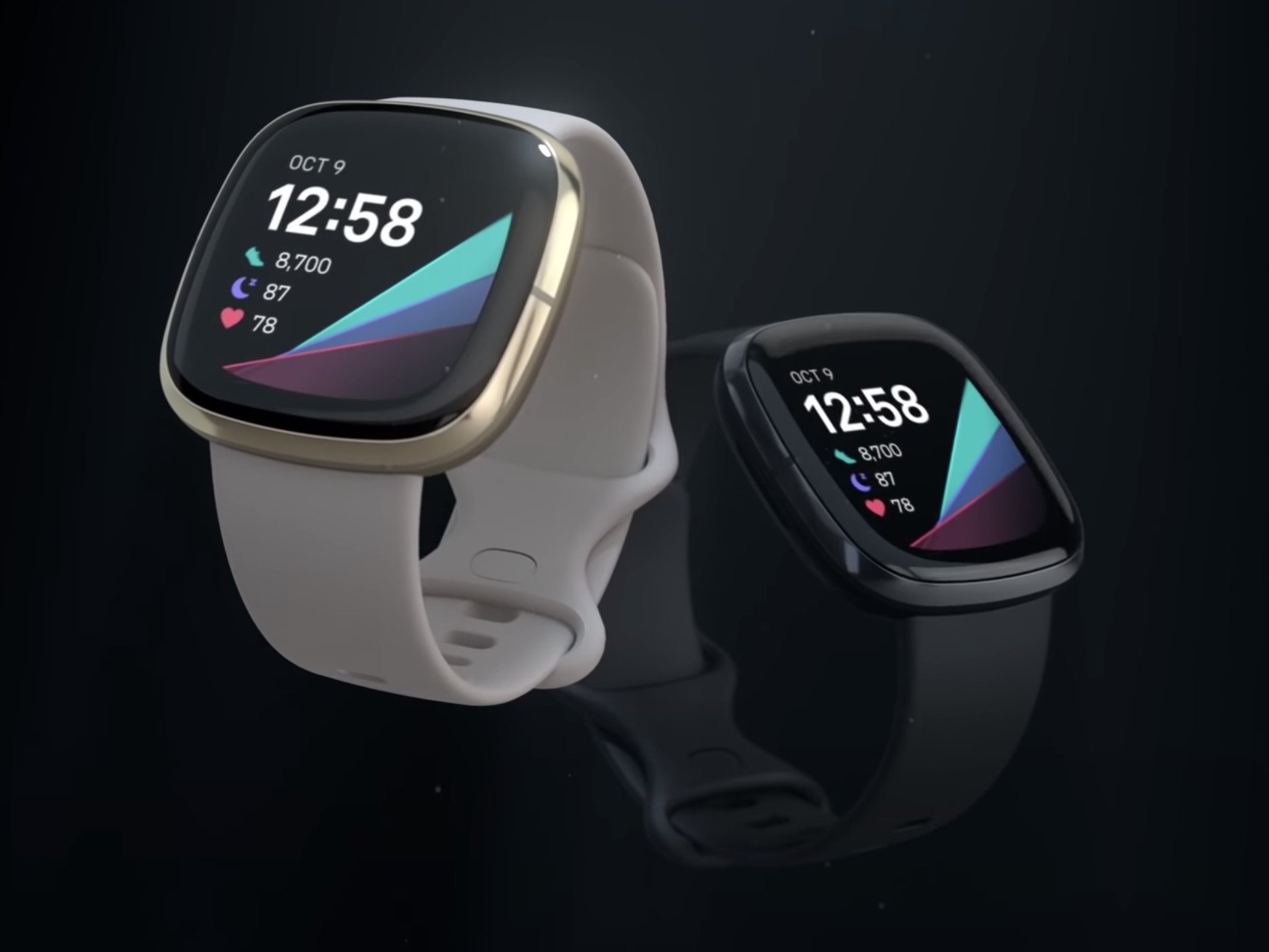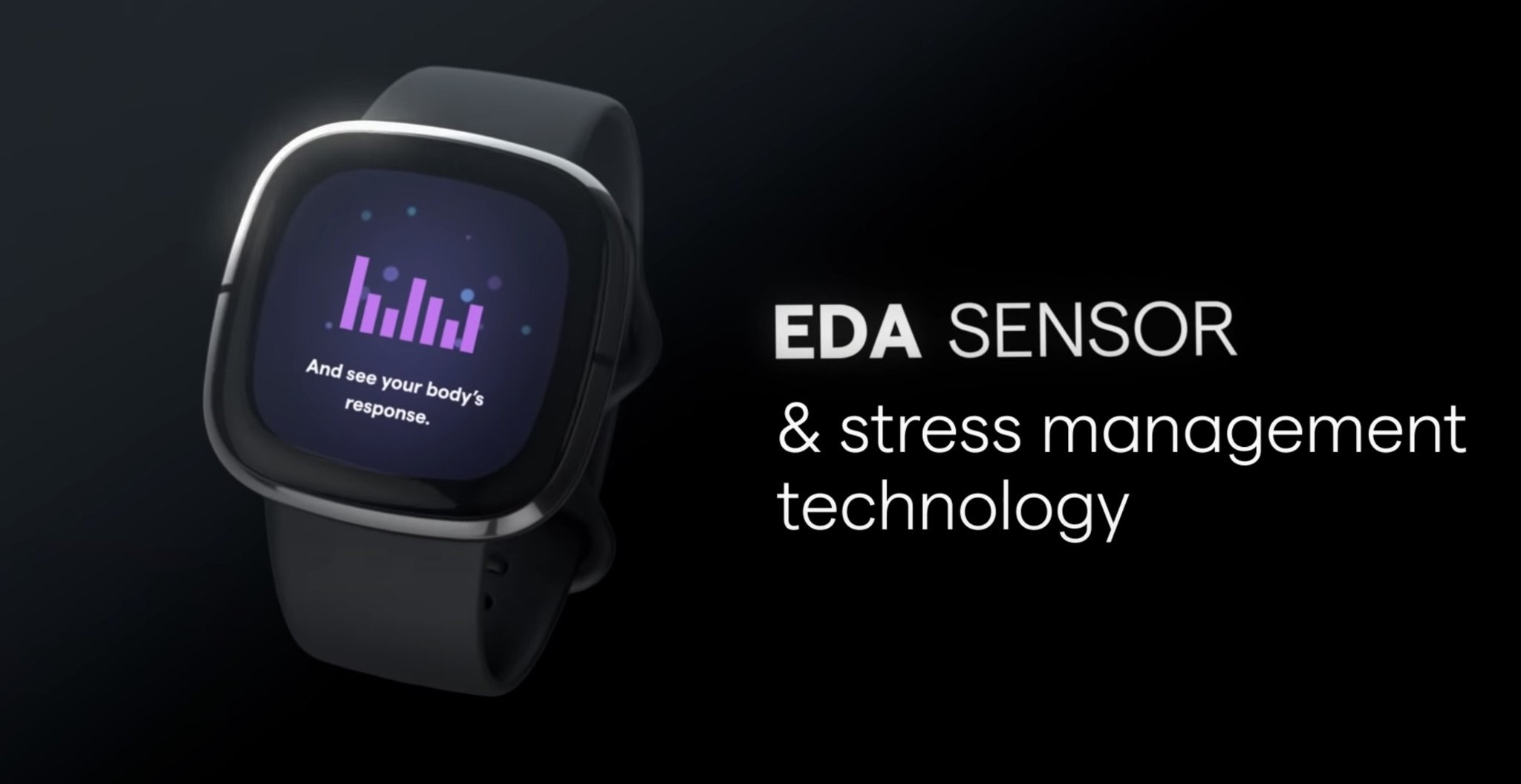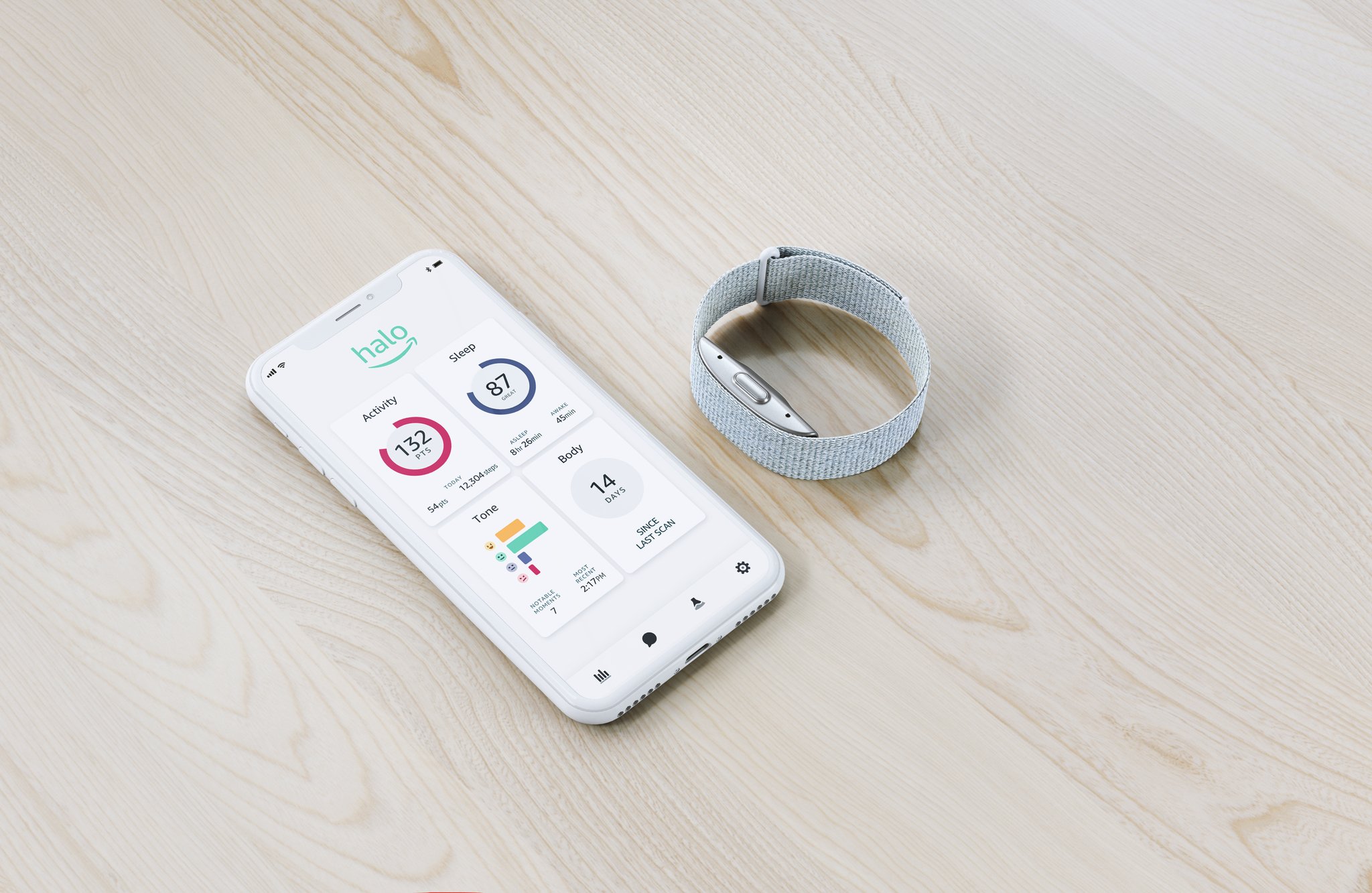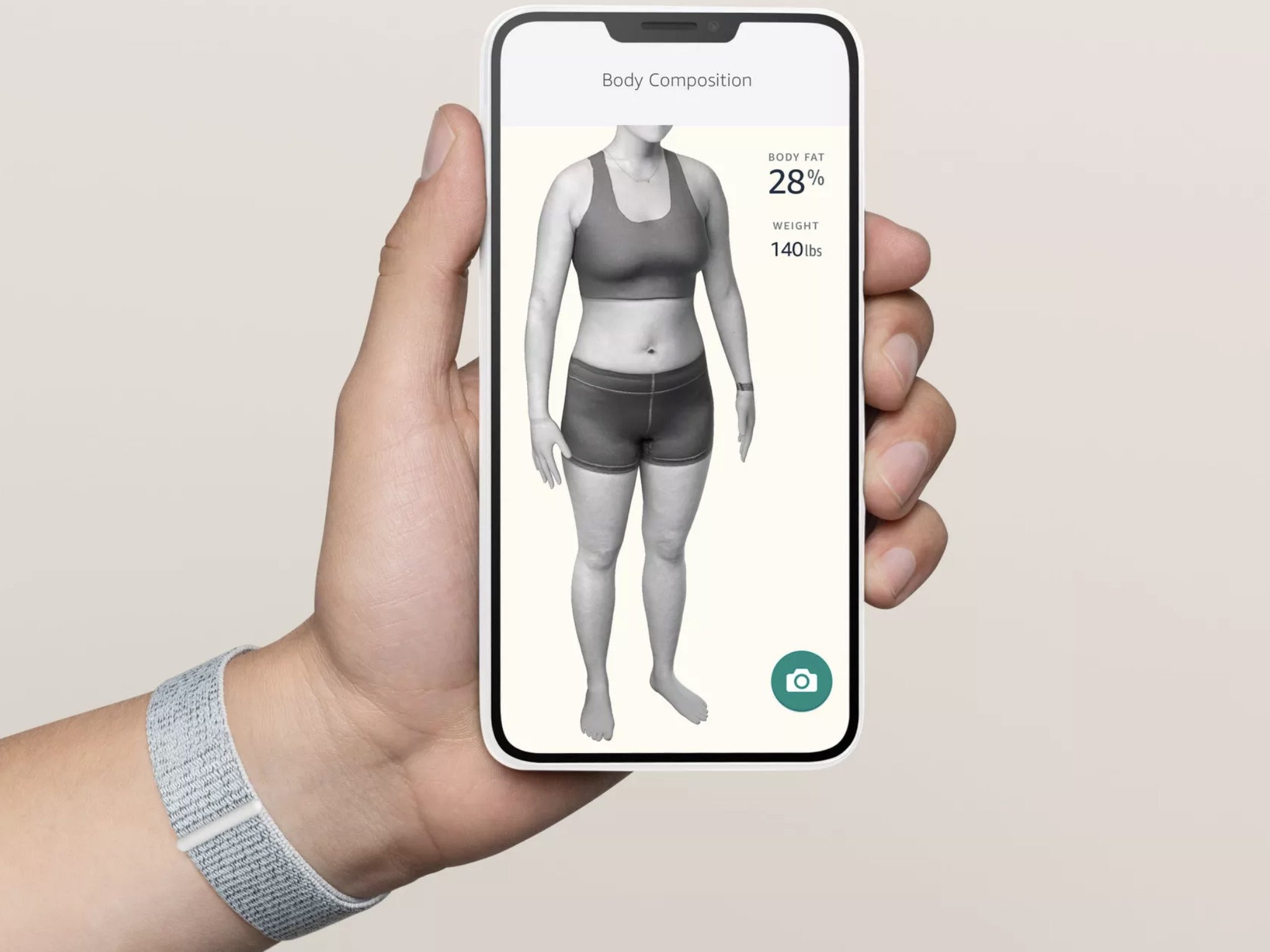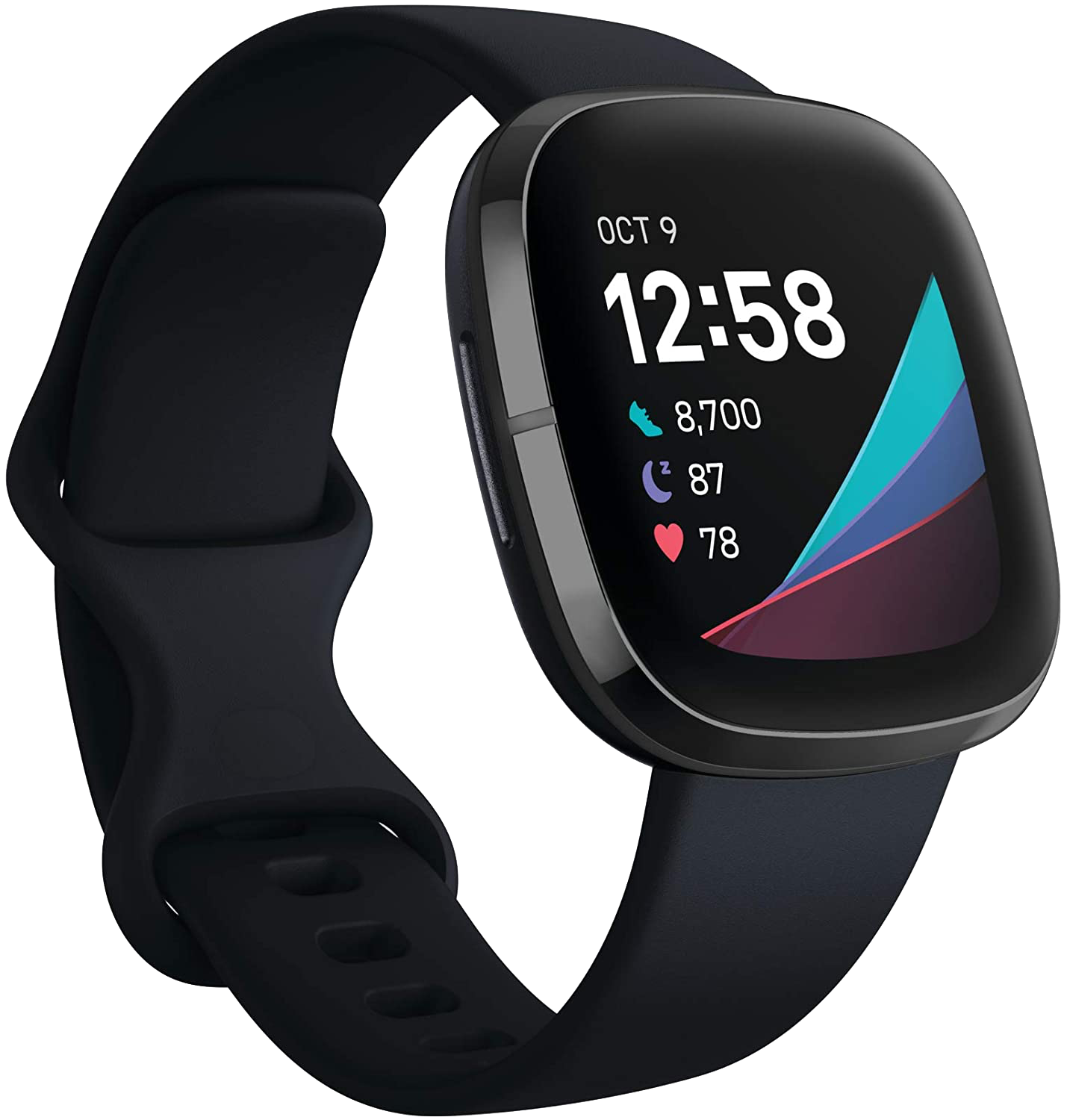A stress-tracking smartwatch sounds incredibly stressful.
Seemingly out of nowhere, 2020 is quickly shaping up to be one of the biggest years for wearable tech that we've had in a long time. Samsung's Galaxy Watch 3 proved to be a hit, there's a new Apple Watch on the horizon, OnePlus is expected to drop its first smartwatch very soon, and we have new health-focused wearables from Fitbit and Amazon. For the purpose of this editorial, those are the ones I want to focus on.
What's interesting about these two releases is that while they're coming from two very different companies, both Fitbit and Amazon are taking unique approaches to the world of holistic health. With both the Fitbit Sense and Amazon Halo wearables, we have two devices that aim to help you live a better life by focusing on things other than your step count and exercise minutes. I'm all for new ways of using technology to improve one's quality of life, but the transition of getting used to these things could be a challenge in itself.
Fitbit Sense
Let's start with the Fitbit Sense, which at first glance, looks like a pretty modest upgrade to Fitbit's Versa series of smartwatches. It does all of the usual Fitbit stuff you've come to expect, allowing you to log exercises, track your sleep, monitor your water intake, etc. None of that is going away, but on the Sense, it's joined by an all-new feature — stress tracking.
Fitbit Sense is equipped with an EDA sensor, which is able to scan your body's electrodermal activity. Electrodermal activity can measure how your body responds to stress, and on both the Sense's display and in the Fitbit app, you'll be able to see a graph of your stress throughout the day and understand how it changes over time. It's a very timely feature for the world we currently live in, and by understanding how we deal with stress, Fitbit hopes that the Sense will urge you to "understand your stress, reflect on your mood, and make time for mindfulness."
Proper stress management goes beyond an app on your phone.
All of that sounds amazing in theory, but I'm not yet convinced about its real-world performance. The idea of having my watch remind me of just how stressed I am sounds incredibly stressful on its own, and while that data can be put to good use, it's still up to you to actually do something about it. If you don't, you'll be just as stressed as before, except this time you have a screen on your wrist making sure you don't forget.
There's also the possibility that some people could see that their stress levels are high, do a recommended meditation session through the Fitbit app, and think that's all there is to it. That could be enough for some individuals, but relying on a smartwatch instead of seeing a therapist for working on your mental health is not a good alternative.
Fitbit obviously isn't responsible for what its users decide to do or not do with the data they get from something like the Fitbit Sense, but this big push of improving mental health from a consumer electronics brand instead of just seeking out a doctor all feels a bit icky to me. I have no doubt that Fitbit's intentions are good and pure, but effectively turning your mental health into another app on your phone doesn't seem all that healthy.
Amazon Halo
Perhaps even more unsettling for some people, there's the next product we need to talk about — Amazon Halo. Amazon unveiled the Halo on August 27 with virtually no fanfare, which is especially interesting given that it's the company's first-ever fitness band. It's also pretty unique in how Halo operates, as it has no on-device display and doesn't do the traditional step/exercise tracking that you get on something like a Fitbit. Instead, Halo tracks your daily activity and sleep as numbered points and uses sensors on the back to measure the intensity of your activity and the quality of your sleep.
There's nothing inherently troubling or concerning about that, but where things start to get weird is with Amazon Halo's body fat tracking. Using Halo's sensors and your phone's camera, Amazon creates a personalized 3D model of your body to show you your body fat composition, weight, and body fat percentage.
Ignoring the questions regarding how technically accurate something like this can be, it also sounds like a nightmare for someone with a disorder like body dysmorphia. Amazon isn't forcing anyone to buy Halo, but the fact that we have a device that is so heavily focused on body image is concerning. As pointed out by Dieter Bohn at The Verge, there's even a feature that allows you to move a slider and see what you would look like with less body fat. To say that's troubling would be a massive understatement.
Then there's the "Tone" feature, which sees the Halo periodically listening to your voice throughout the day and providing feedback on how you sound — whether it be friendly, delighted, overwhelmed, etc. This brings up the same concern I have with the Fitbit Sense's stress tracking, which is that it could potentially cause more stress for users than intended. I'm someone that often reflects on how I speak with people, even for something as simple as picking up my food from a restaurant. Wearing a gadget that tells me I spoke the wrong way when I was already anxious about it doesn't sound like a fun time.
Getting comfortable with the future of health care
I'm not saying any of this with the intent of bashing Fitbit and Amazon for trying something new with wearable tech. In fact, I think it's really exciting that these two companies are using their resources to try and better the lives of people through the means that they think are best.
That said, I am concerned about this transitional period. Health and technology go hand-in-hand more than ever before, especially in the world that we live in now where doctor appointments are held over video calls. The merging of these two things is great to see, but it's going to take some time for companies to learn what is and isn't appropriate for their approaches — just like we need to learn how to get comfortable with these new offerings.
A stress-monitoring watch and vocal-training fitness band might be the norm a couple of years down the road, but right now, I can't help but feel a little apprehensive.
Stress-tracker
Fitbit Sense
$330 at Amazon $330 at Best Buy
Monitor your steps, sleep, stress, and more
The Fitbit Sense is the most capable Fitbit yet, offering robust features for physical activity tracking and holistic health. It's the first Fitbit with stress-tracking, ECG readings, and a skin temperature sensor— all on top of everything you already know and love from the company.
Source: Android Central - Android Forums, News, Reviews, Help and Android Wallpapers
